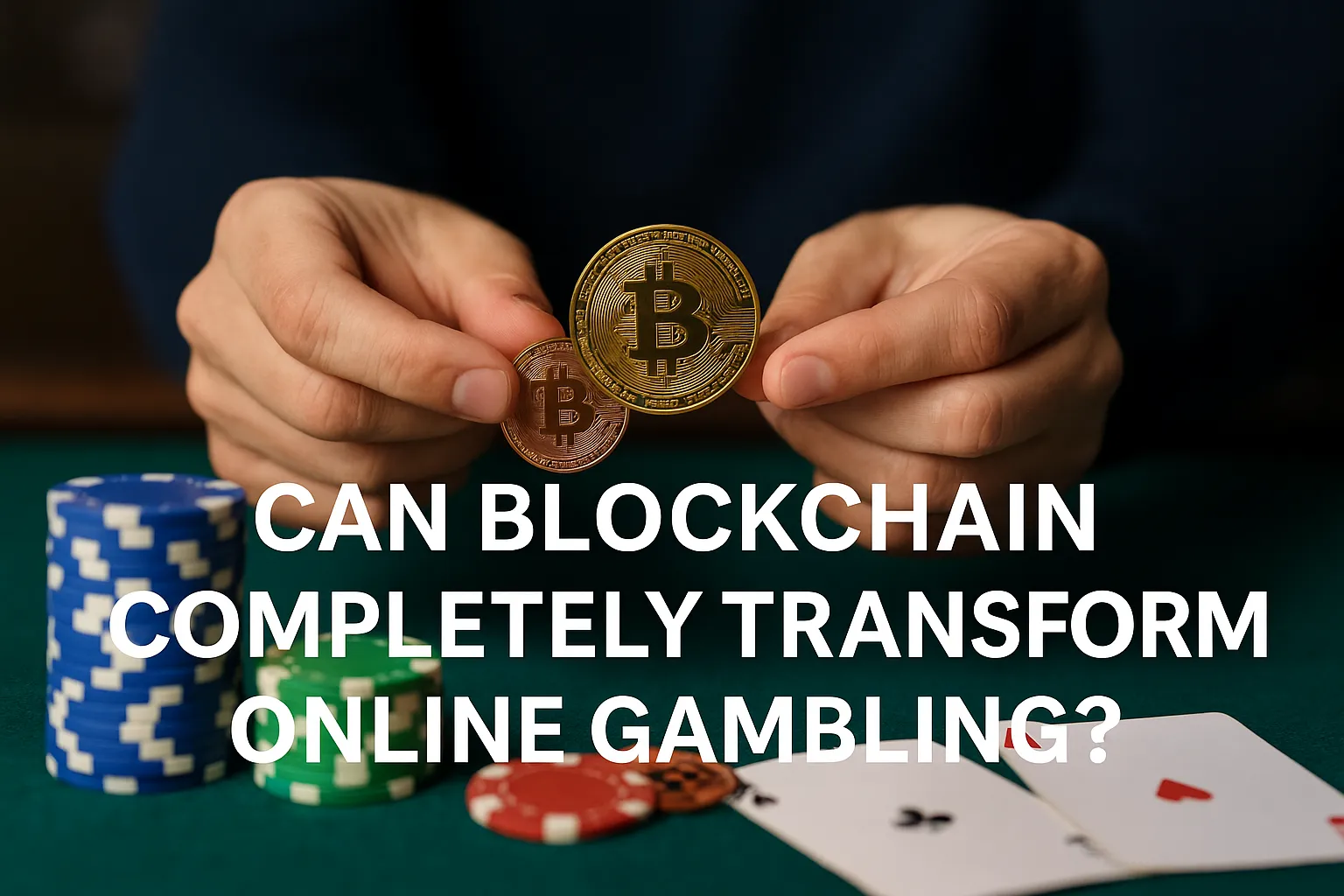Online gambling has evolved rapidly over the past two decades, moving from basic websites to mobile-first platforms and immersive live dealer experiences. But the next big question for the industry is whether blockchain will completely transform how we gamble online. From what I’ve seen and studied, blockchain offers massive potential—yet its impact will depend on how effectively casinos, regulators, and players embrace it.
The Promise of Blockchain in Gambling
At its core, blockchain is about decentralization and transparency. Online casinos traditionally operate as centralized entities, requiring players to trust that the games are fair and the payouts will arrive. But trust is often fragile, as delays, disputes, and even fraudulent operators have left many players cautious.
Blockchain changes that dynamic. Every transaction is recorded on an immutable ledger, and smart contracts can automate outcomes. Imagine a slot game where the result is verified on a public blockchain—players would no longer need to wonder if the system is rigged. In the same way, payouts could be instant, removing long waits for withdrawals.
Just as best crypto casino uk platforms are reshaping payment options, blockchain itself could reshape how fairness and transparency are built into the very foundations of gambling.
Why Blockchain Appeals to Players
For players, the benefits are clear. Cryptocurrencies allow for faster and often cheaper transactions compared to traditional payment methods. They also offer more privacy, which is a big draw for gamblers who don’t want banks or governments monitoring their activities.
Provably fair gaming, where blockchain ensures that outcomes cannot be tampered with, is another huge attraction. It flips the power dynamic, giving players proof rather than just promises. In addition, global access through cryptocurrency removes many of the restrictions that come with fiat currencies, enabling players from different regions to gamble more easily.
The Challenges of Blockchain Adoption
Despite its potential, blockchain isn’t without hurdles. One of the biggest is regulation. Gambling is one of the most heavily regulated industries in the world, and regulators are still grappling with how to classify and oversee blockchain-based casinos. Without clear frameworks, some players may hesitate to trust platforms fully.
Another challenge is user education. While younger, tech-savvy players may be comfortable using digital wallets and navigating decentralized platforms, mainstream audiences might find blockchain intimidating. For blockchain gambling to become truly mainstream, platforms will need to simplify the experience so that anyone can participate without needing deep technical knowledge.
The Future of Hybrid Platforms
Rather than a sudden shift, I believe we’ll first see hybrid platforms that combine traditional online gambling with blockchain-powered features. For example, a casino might still offer fiat payments but also provide crypto options for deposits and withdrawals. Similarly, some games may run on provably fair blockchain systems, while others remain centralized.
This hybrid approach makes sense because it allows for gradual adoption, regulatory compliance, and smoother player onboarding. Over time, as both the technology and user familiarity grow, we may see fully decentralized casinos becoming more mainstream.
The Role of Crypto in Shaping Gambling
Cryptocurrency is more than just a payment method—it’s a cultural shift. Many crypto users value independence, privacy, and innovation, and they bring those expectations into the gambling space. The rise of decentralized finance (DeFi) and Web3 ecosystems means players are looking for platforms that align with these values.
In this way, blockchain gambling could become more than just entertainment. It could become part of a larger financial ecosystem, where gaming, investment, and digital identity converge. Casinos that adapt early will likely benefit the most, while those slow to innovate may struggle to stay relevant.
Final Thoughts
So, can blockchain completely transform online gambling? The answer is yes—but not overnight. Blockchain has the potential to create a more transparent, fair, and globally accessible industry. Players stand to benefit from faster transactions, provably fair games, and greater privacy. But regulatory challenges, user education, and technological adoption will shape how quickly this transformation happens.
In the end, blockchain won’t just change online gambling—it could redefine trust in the industry itself. Whether it’s through hybrid platforms or fully decentralized casinos, the future of gambling is likely to look very different from what we know today.




